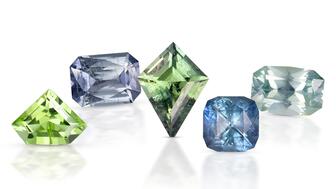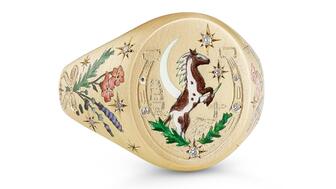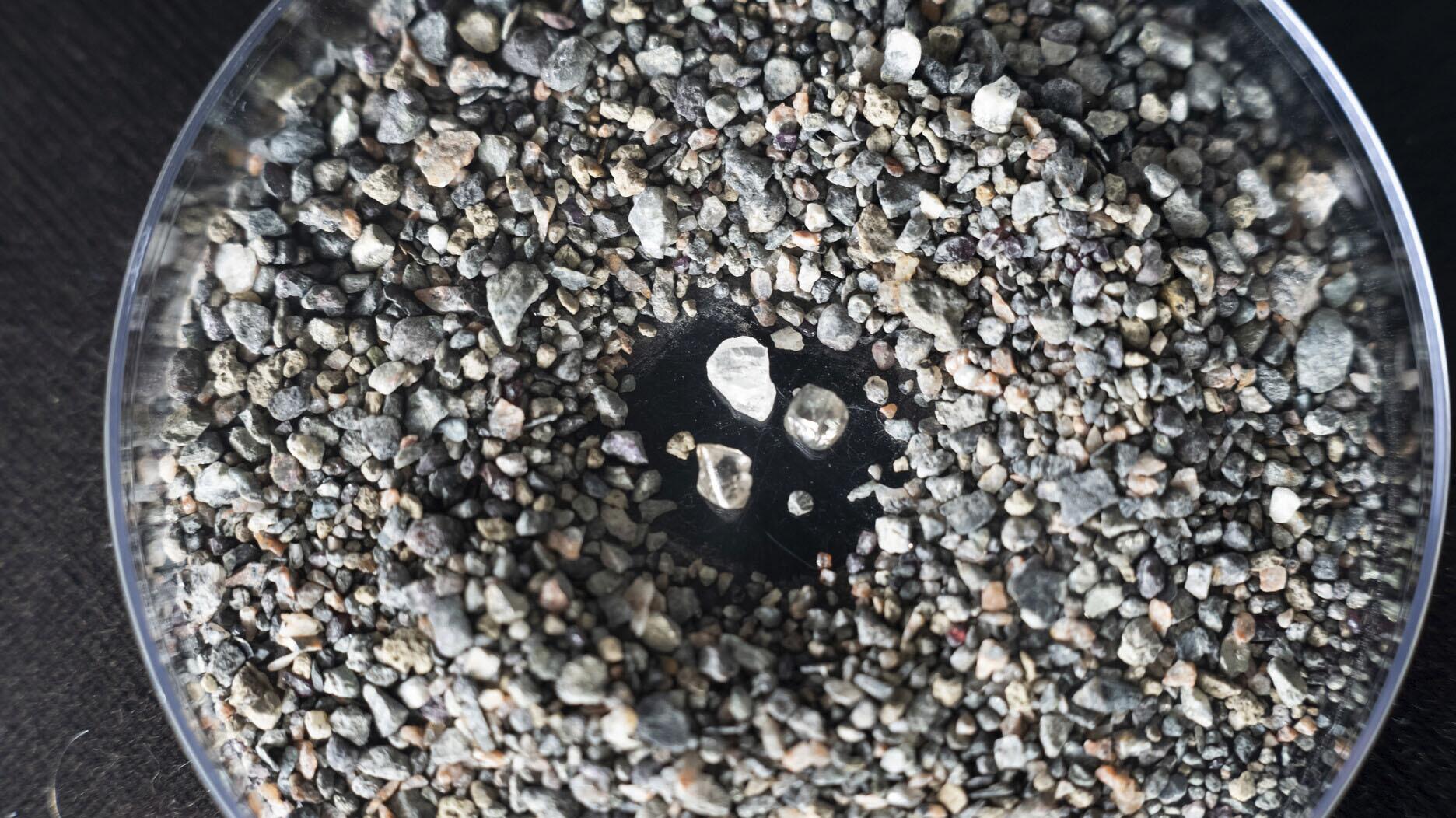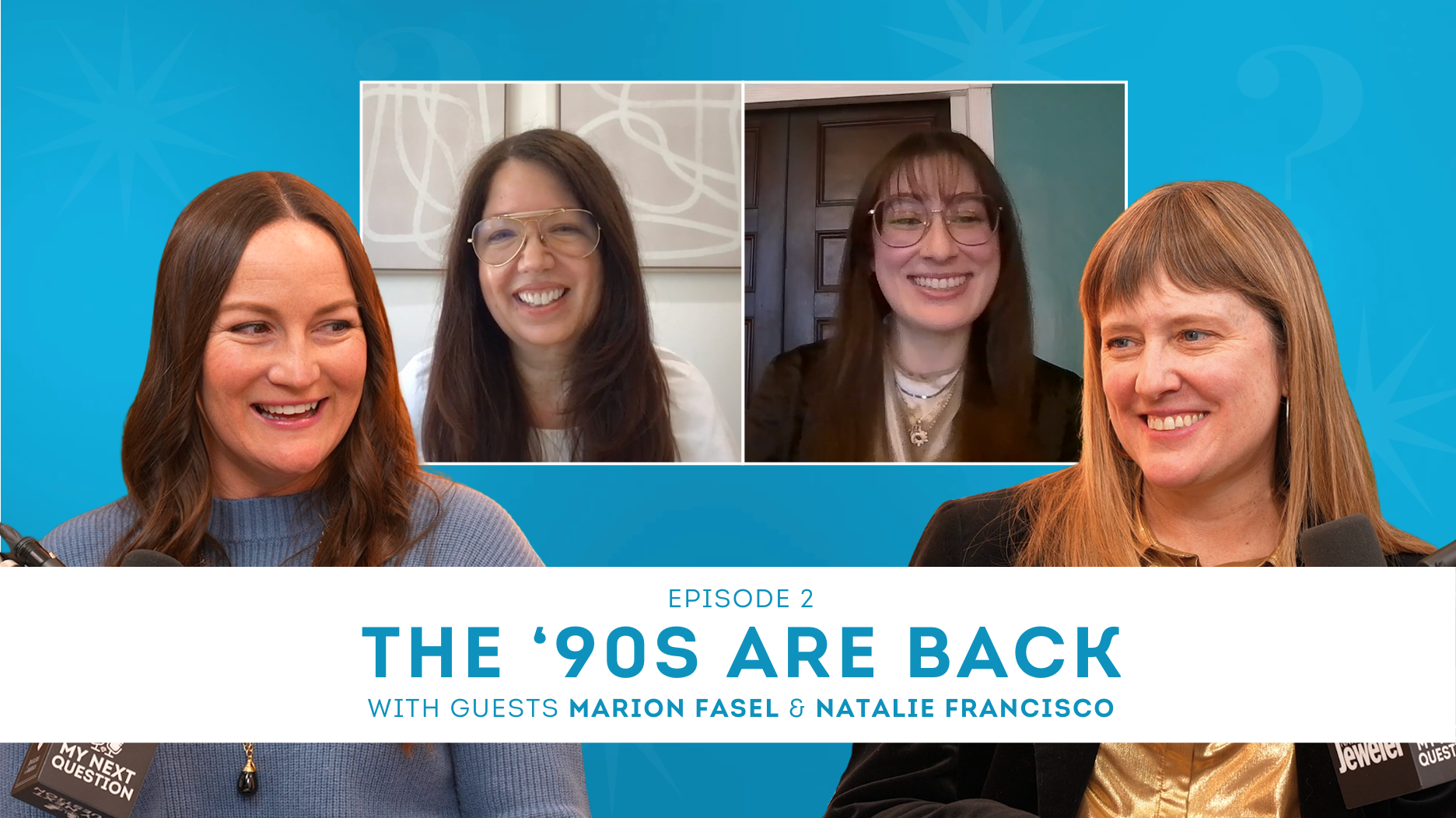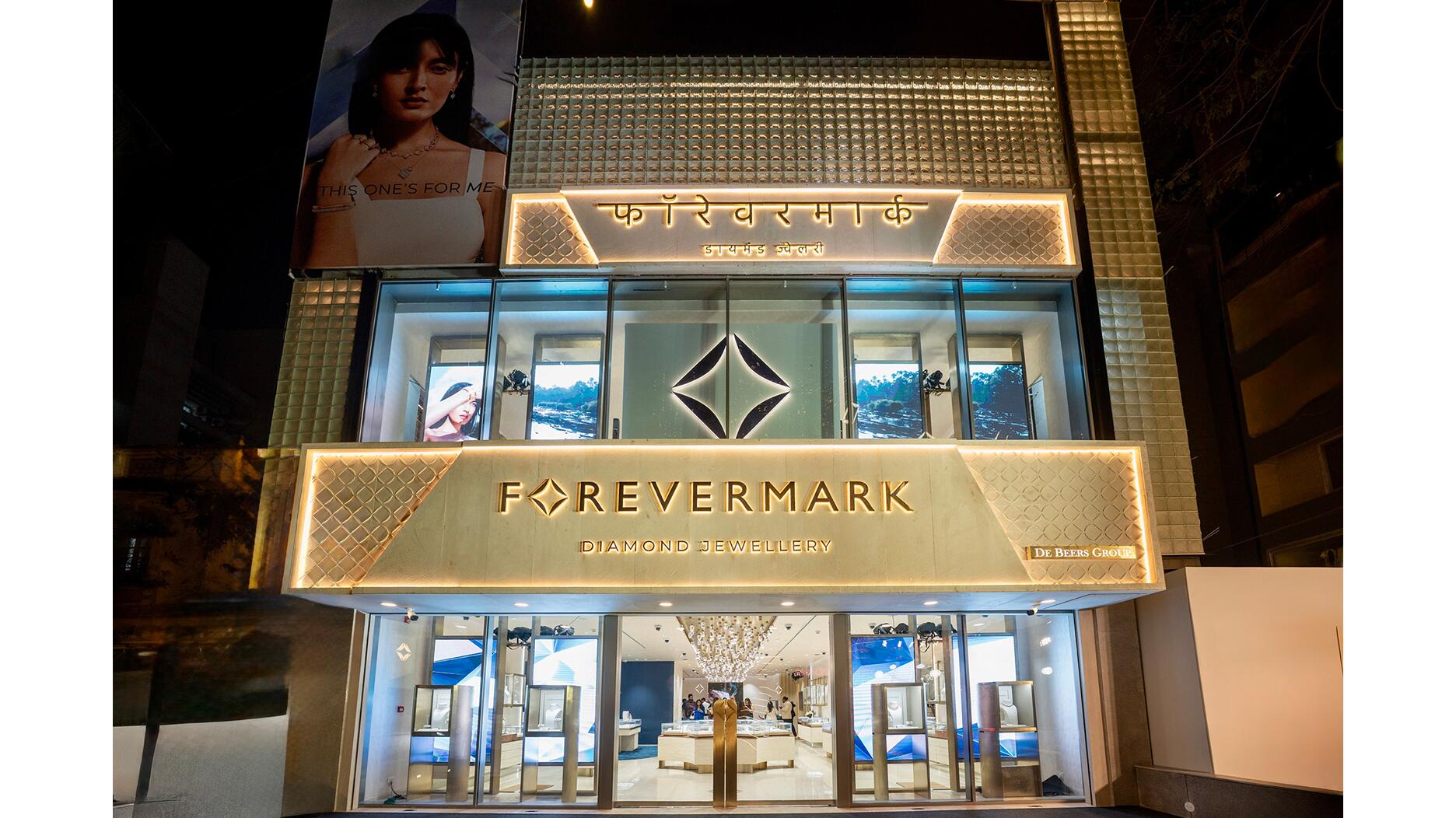State of the Colored Stone Market: Dropping Some Valuable Gems
In a collection of Q&As, key players give insight on supply, demand, the importance of origin, and whether the “Color of the Year” matters.

From miners and dealers to designers and retailers, everybody along the colored gemstone supply chain has felt the impact of the past few years.
The pandemic, U.S. and global sanctions on Russian diamonds, and the spotlight placed on racial and economic inequity worldwide have changed the way almost everybody thinks, acts and does business.
To better understand the market today, National Jeweler caught up with six players who’ve managed to survive an ongoing pandemic, navigate disrupted supply chains, and get on board the global digital takeover.
They represent all points along the supply pipeline, from those who mine gems in Africa, to longtime gem dealers in New York City’s Diamond District, to a retailer in the Rocky Mountain region.
Each one had a positive outlook, expressing their optimism for the market all while managing to share valuable insights.
The best part—we got to find out from each of them which colored gemstone truly has their heart.
Jeffery Bolling, owner and designer at Jeffery B Jewelers

Q: Are you seeing a growing popularity for colored gemstones from your consumer base?
A: Yes, but in an unusual way for me that I’ve seen for the first time—the request for engagement rings. A lot of times, you think it’s because they think it could be less expensive, and it’s not the case. They’re just very happy about having something different than a diamond.
That’s been something new. We’ve done a yellow sapphire, a green tsavorite, and I recently delivered an amethyst in an engagement ring with diamonds on the side.
Q: When the pandemic hit, did you have to create or improve your digital presence, or did you already have one?
A: I always felt that in a small business, the key is to be able to be extremely proactive in reaction to problems in the industry, and so I went right to work setting up this Zoom situation.
I did some classes on Zoom and I immediately started to post on all social media that we were available for Zoom meetings.
Zoom helped us through the pandemic and I’d like to start pushing it even more because I think I could spread out my customer base beyond the state of Colorado if I could do more Zooms.
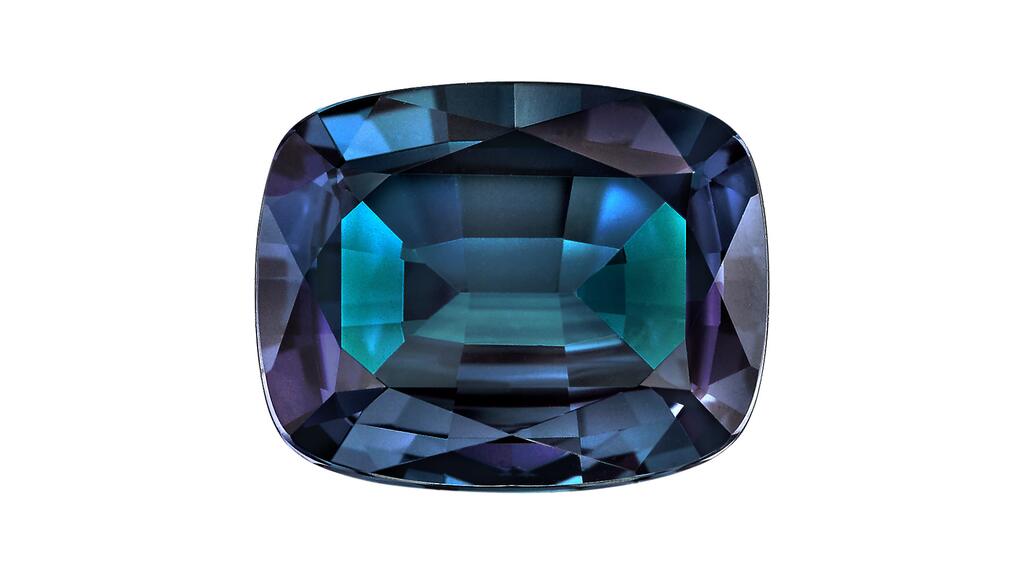
Q: Are your customers requesting higher-quality colored gems, even if it means acquiring a smaller stone?
A: Yes and no. I think the attitude is although lab-grown diamonds are very well accepted, when it comes to color, they are willing to downsize to know they’re getting natural; natural color is more important than natural diamond!
Q: Every year, Pantone names a “Color of the Year.” This year, it is Viva Magenta. Does this annual announcement impact desirability?
A: It does affect people’s thought process of what color they like. I talked to a marketing guy about what this means, and how people look at it in the marketing world, truly looking at it big time.
Q: If you were to be reincarnated as a gemstone, which one would it be and why?
A: Alexandrite because of its rare and unique properties, which are not widely known. It is also associated with qualities such as balance, harmony, and self-control, making it a desirable gemstone to possess.
John Ferry, founder and CEO of colored gemstone mining company Prosperity Earth

Q: How are you connecting with the next generation of colored gemstone consumers, designers, etc.?
A: Given that our industry is so rich in terms of information and there’s so many layers and aspects to the trade, being transparent and focusing on education is extremely important.
Q: What are the challenges for colored gemstones right now?
A: The availability of rough supply. That’s not a challenge for us per se, because we’re the miner, right? A comment I hear repeatedly from designers, jewelers, retailers, and dealers is they can’t replenish stock fast enough and/or at the right price.
Q: We lost a lot of people during the pandemic. What kind of impact has this had on the colored gemstone supply chain and, ultimately, prices?
A: Prices in general are firmer and in addition to pricing as I mentioned, supply is tight.
There’s definitely more of a premium for melee. I don’t know if that’s something you’ve heard but [it’s the case] especially on the diamond side; diamond melee and the big cutting centers in India were affected [by the pandemic].
[This is fueling a] very big push in substitution where color is being used a lot more than diamonds, especially in melee, which I think is a great thing for the industry as far as expressiveness, creativity, and originality.
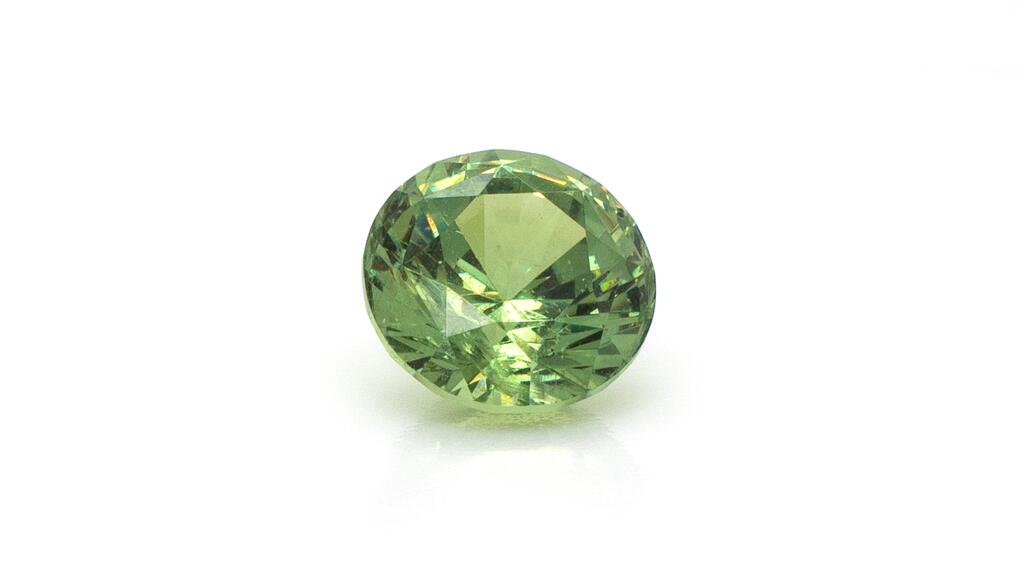
Q: Do you want to make any predictions for our readers based on your experience in the industry?
A: Over the next several years, companies that have a rich backstory and a strong ethos, be they jewelers or designers or miners such as us, are going to have really big success.
I believe the industry is becoming more savvy about transparency and authenticity and is able to tickle out who’s who, who’s real and who’s not, who’s creative and who’s not … really, really green pastures ahead for the gem industry.
Q: If you were to be reincarnated as a gemstone, which one would it be and why?
A: This is the easiest question to answer. OK, I’d 100 percent come back as a demantoid [garnet] of course and the reason being, I love my home.
I love the people who pulled me out of the ground, the environment of northern Madagascar, and the association of the water, but also the incredible biodiversity and rich culture.
All of that is intertwined in my existence as a gem. Not only that, but it’s also the most beautiful gem with the biggest smile and the most fire.
Monica Stephenson, president, Anza Gems and idazzle

Q: Origin has been tied to value. Do you agree with this, or do you think a gem’s beauty and quality should determine the value?
A: I look at gems as valuable in terms of how they came to market, how many hands touched that gem and were those hands properly acknowledged or compensated along the way?
Q: Are your customers requesting higher-quality colored gemstones even if it means acquiring a smaller stone?
A: Tucson is a good benchmark because it was a great opportunity to interact with people so personally and really get their feedback.
We deal with what comes out of the ground and a lot of our gems are from more marginalized, artisanal miners, including women who are not always able to access the best equipment or the best mining techniques to extract the highest quality gems.
We have what we have, and those gems are as beautiful. Our customers are more interested in the story.
Q: Every year, Pantone names a “Color of the Year.” This year, it is Viva Magenta. Does this annual announcement impact desirability?
A: Viva Magenta really captures a mood and an energy that is happening right now with designers and consumers.
It has a lot of energy and playfulness to it, and I think it’s striking the right chord where people want to be right now. So, fresh in from Tucson, we just saw a tremendous interest in pinks.
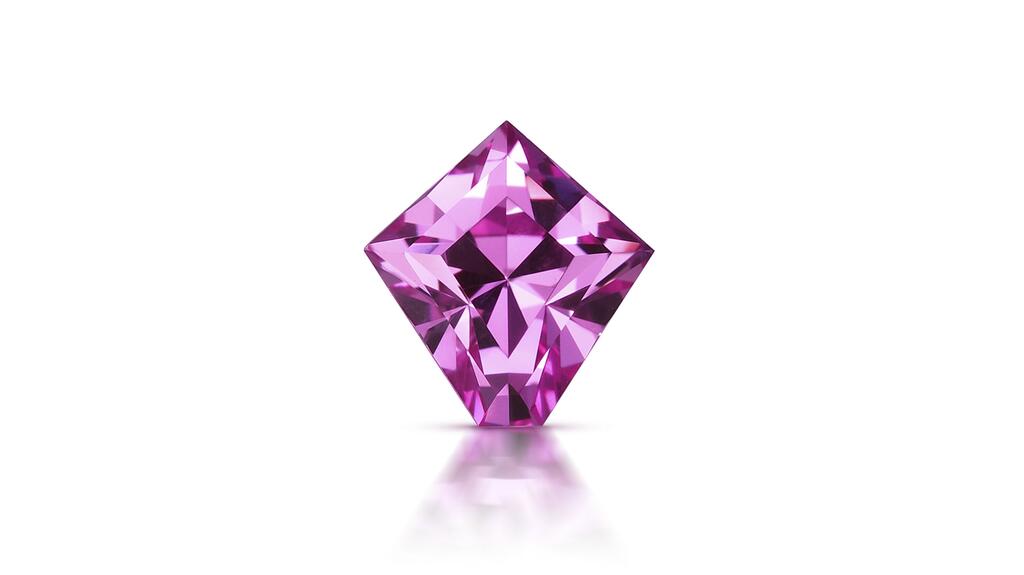
Q: We lost a lot of people during the pandemic. What kind of impact has this had on the colored gemstone supply chain and, ultimately, prices?
A: A lot of people didn’t look at mining as a viable activity at the height of the pandemic and so we tried to figure out ways to go ahead and support those communities through purchasing their rough gems.
Even in our absence, through export brokers they’re trying to sustain those supply chains. But there’s definitely an impact overall all through the supply chain.
Q: If you were to be reincarnated as a gemstone, which one would it be and why?
A: Spinel. I love the fact that spinels historically have been a bit of a chameleon, with their incredible color spectrum and optics mimicking other gems.
I also love that spinels are associated with the characteristic of helping put the ego aside and become devoted to others, as well as representing passion, all things I identify with. Plus, the spinels from where I source from in East Africa are truly gorgeous gems.
Lotanna Amina Okpukpara, director and gemologist, Mina Stones

Q: Are you seeing a growing popularity for colored gemstones from your consumer base?
A: We get lots of requests for colored gemstones and it forms the majority of the orders we fulfill. This ranges through all the colored stone products we offer, from rough gemstones to cut and polished pieces, and gemstone jewelry.
Emerald, sapphire, morganite, aquamarine and amethyst are very popular on our consumer list.
Q: How are you connecting with the next generation of colored gemstone consumers, designers, etc.?
A: Majorly through social media and networking.
Q: Origin has been tied to value. Do you agree with this, or do you think a gem’s beauty and quality should determine the value?
A: I think the beauty and quality of a gem should determine its value. We hope it changes soon. We, collectively, can start marketing the value of gemstones for what they are and not where they are from.
Q: We lost a lot of people during the pandemic. What kind of impact has this had on the colored gemstone supply chain and, ultimately, prices?
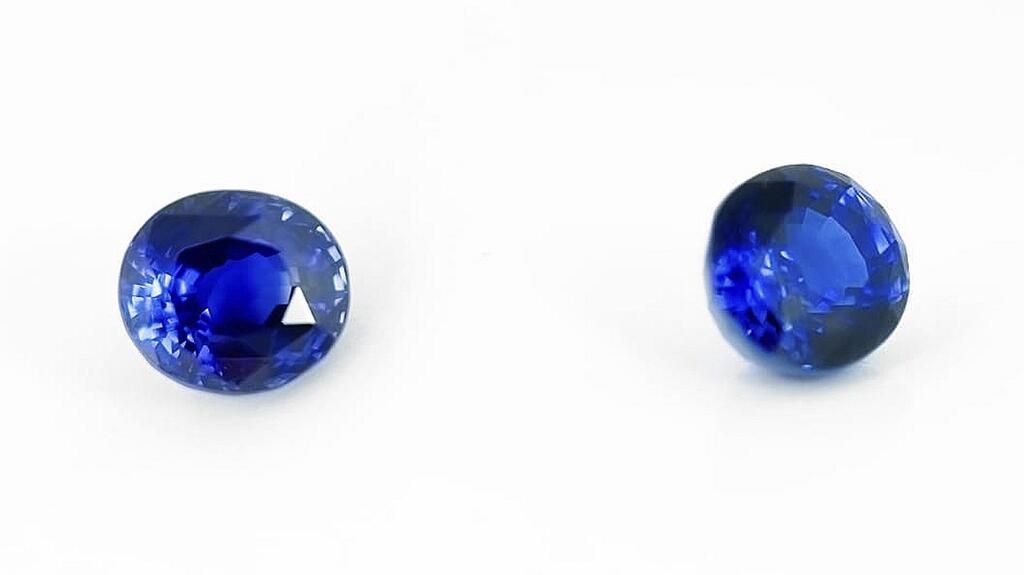
A: The pandemic had a great impact on many ASM (artisanal and small-scale) gemstone miners.
We lost some of them and others were in a really bad place, as there was little or no mining for a while and the access to market was affected greatly. The prices of gemstones definitely increased significantly and [even more so] in some areas compared to others.
Q: If you were to be reincarnated as a gemstone, which one would it be and why?
A: Sapphire. I just love seeing a beautifully cut and unusual sapphire. It makes me really happy.
Ron Sandor, co-president, A and C Gem Trading Corp., and Heather Sandor, co-president, A and C Gem Trading Corp.
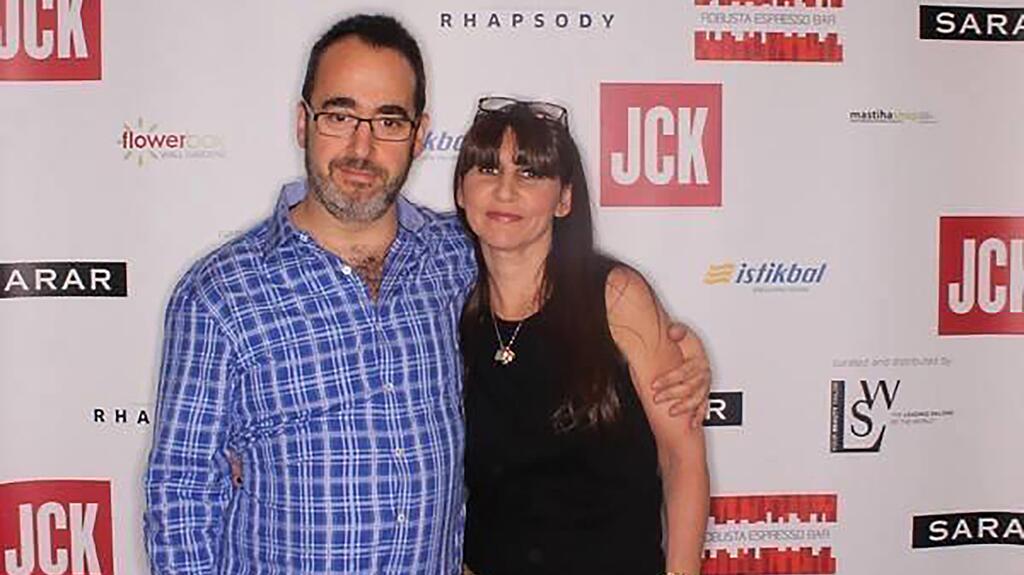
Q: What price points are performing well?
Heather: Because we have always been located at the street level in the New York City Diamond District, and we have an extensive inventory that is almost 40 years in the making, we have an incredibly diverse client base, ranging from the young bespoke designers to the old-school 47th Street diamond dealers.
There is only one thread that seems to be consistent and that is, regardless of the price point, the clients are always choosing to work with fine, bright, quality colored stones.
Q: Every year, Pantone names a “Color of the Year.” This year, it is Viva Magenta. Does this annual announcement impact desirability?
Ron: I don’t think Pantone influences the colored stone market trends.
Color trends take many years to develop like the blue-green trend, which we first noticed about six years ago when we began to get similar color requests from a diverse array of clients.
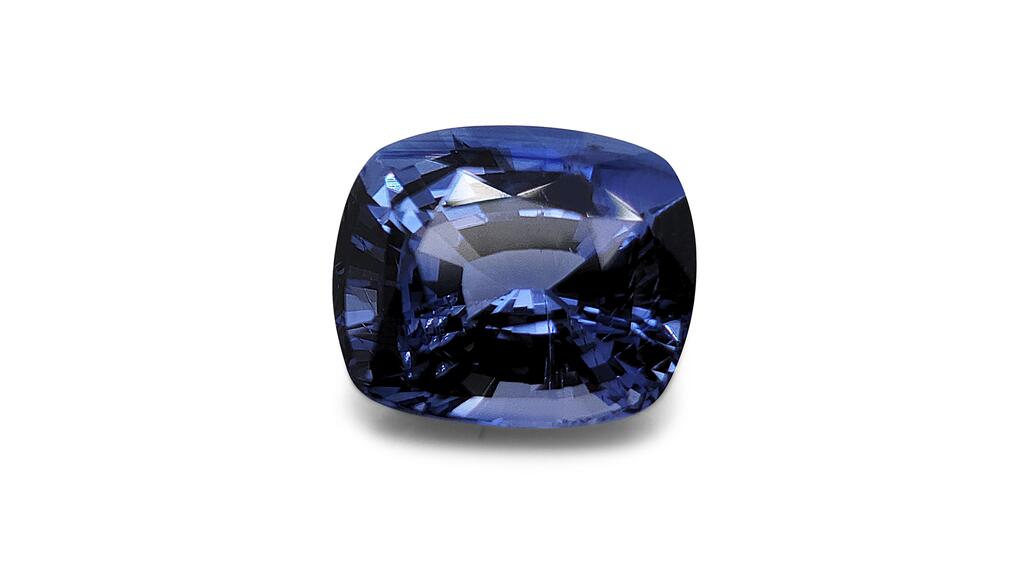
Q: What colored gems do you predict will become scarce in the next five to 10 years?
Ron: If I had held onto the Paraíba [tourmalines] I bought 20 years ago, I would have far outperformed the stock market!
Q: Origin has been tied to value. Do you agree with this practice, or do you think a gem’s beauty and quality should determine the value?
Heather: Unfortunately, too many people both in and out of our industry can fall prey to excellent marketing campaigns, which are highly effective at promoting a specific brand or mine.
Colombian emeralds are highly sought after in the consumer’s mind, but we have seen some of the most stunning, vivid green, clean emeralds come from Brazil where the mine uses only minor amounts of oil to treat their gems.
Sapphires used to be easily geographically identified by their particular shade of blue.
A deep, midnight navy blue would mean Australian sapphires, a grayish blue would signal Thai material, and a cornflower or royal blue color would generally indicate a Sri Lanka/Ceylon origin.
Then Madagascar material appeared in the marketplace and was virtually indistinguishable from the Sri Lankan sapphires.
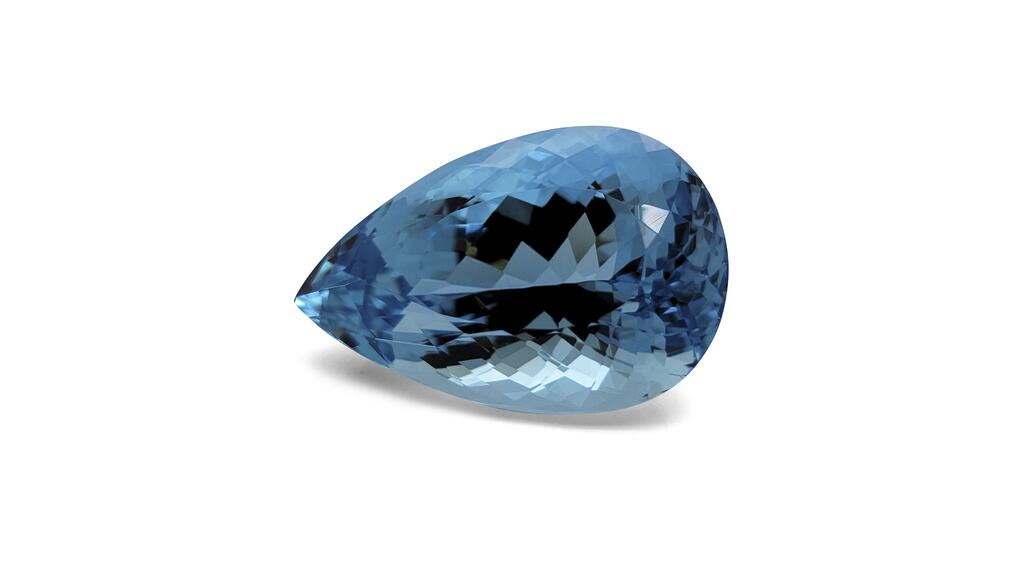
Q: If you were to be reincarnated as a gemstone, which one would it be and why?
Heather: Wow, it would be the tried-and-true classic royal blue Ceylon sapphire! There is something truly magical about a gem that has stood the test of time and remains one of the most desirable and recognizable of all colored stones.
Ron: Simple, fine aquamarine always makes me think of a beautiful Caribbean Ocean, relaxing and inviting! Plus, Brazil is such a special place, bringing so many special gems to the world.
The Latest
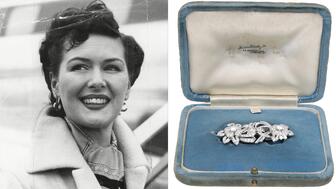
The jewelry collection belonged to “one of society's most glamorous and beautiful women of the mid-20th century,” said the auction house.

Emmanuel Raheb discusses the rise of “GEO” and the importance of having well-written, quality content on your website.

Each received around four years for burglarizing a jewelry store and a coffee shop in Simi Valley, California, last May.

Every jeweler faces the same challenge: helping customers protect what they love. Here’s the solution designed for today’s jewelry business.
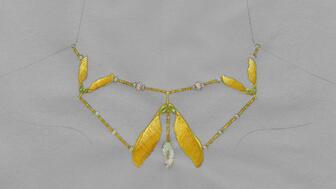
Catherine Aulick, a GIA graduate, received the ninth and final Gianmaria Buccellati Foundation Award for Excellence in Jewelry Design.

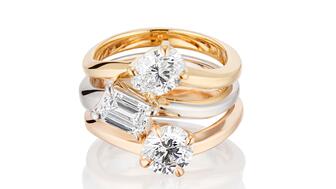
We asked a jewelry historian, designer, bridal director, and wedding expert what’s trending in engagement rings. Here’s what they said.

Beth Gerstein discusses the vibe of the new store, what customers want when fine jewelry shopping today, and the details of “Date Night.”

With refreshed branding, a new website, updated courses, and a pathway for growth, DCA is dedicated to supporting retail staff development.

Are arm bands poised to make a comeback? Has red-carpet jewelry become boring? Find out on the second episode of the “My Next Question” podcast.

The Swiss watchmaker is battling declining sales amid a rapid retail expansion, according to a Financial Times report.

The campaign celebrates Giustina Pavanello Rahaminov, the co-founder’s wife and matriarch of the family-owned brand, for her 88th birthday.

Rachel Bennett, a senior jeweler who has been with Borsheims since 2004, earned the award.

After the Supreme Court struck down the IEEPA tariffs, President Trump imposed a 10 percent tax on almost all imports via a different law.

The industry veteran, who was with The Edge Retail Academy for 14 years, joins her husband at the company he founded in 2022.

The vintage signed jewelry retailer chose Miami due to growing client demand in the city and the greater Latin American region.

Former Flight Club executive Jin Lee will bring his experience from the sneaker world to the pre-owned watch marketplace.
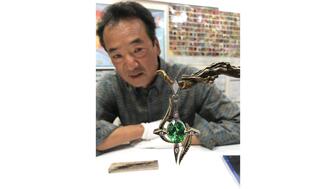
Sakamoto, who died in mid-January following a sudden illness, is remembered for his humility and his masterful, architectural designs.
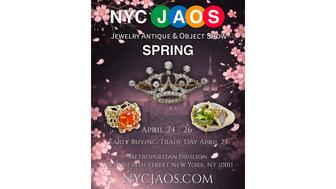
The April event will feature a new VIP shopping day requiring a special ticket.

Bulgari chose the British-Albanian singer-songwriter for her powerful and enduring voice in contemporary culture, the jeweler said.

In a 6-3 ruling, the court said the president exceeded his authority when imposing sweeping tariffs under IEEPA.

Smith encourages salespeople to ask customers questions that elicit the release of oxytocin, the brain’s “feel-good” chemical.

JVC also announced the election of five new board members.
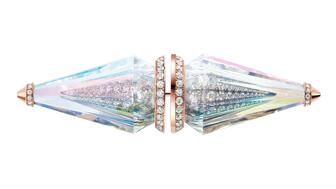
The brooch, our Piece of the Week, shows the chromatic spectrum through a holographic coating on rock crystal.

Raised in an orphanage, Bailey was 18 when she met her husband, Clyde. They opened their North Carolina jewelry store in 1948.

Material Good is celebrating its 10th anniversary as it opens its new store in the Back Bay neighborhood of Boston.
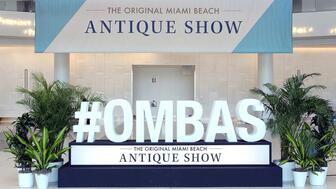
The show will be held March 26-30 at the Miami Beach Convention Center.
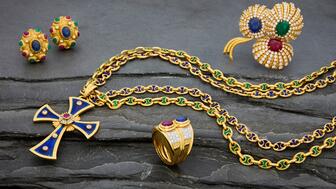
The estate of the model, philanthropist, and ex-wife of Johnny Carson has signed statement jewels up for sale at John Moran Auctioneers.


